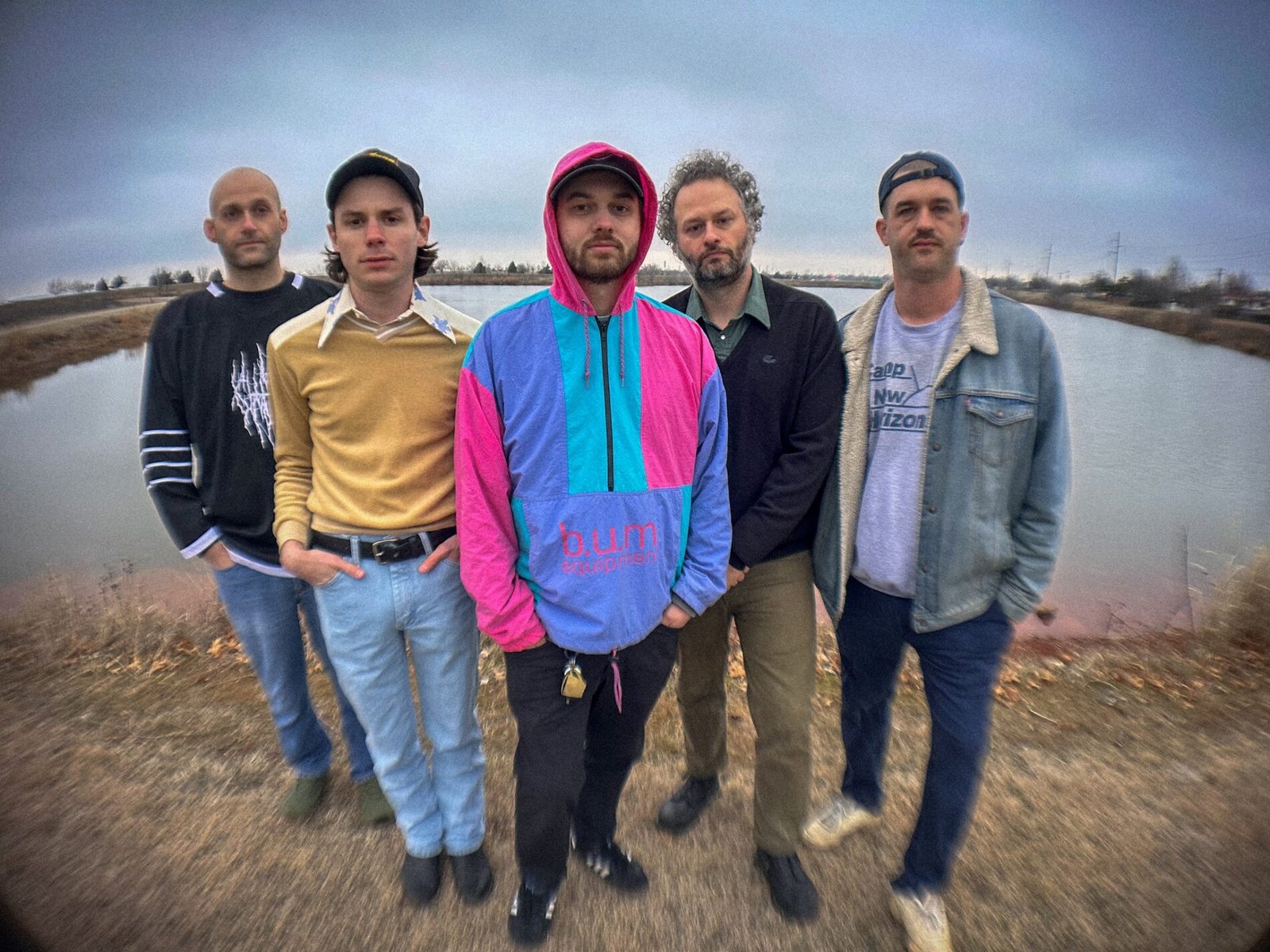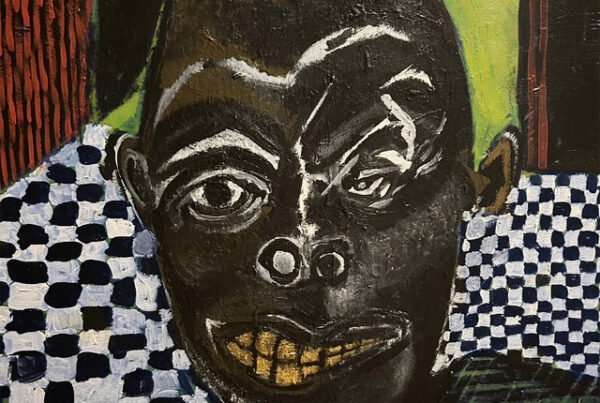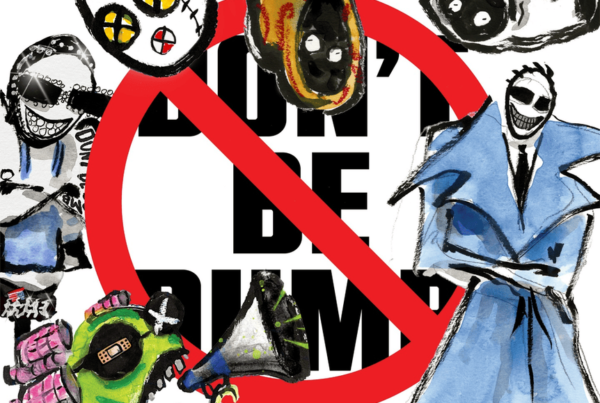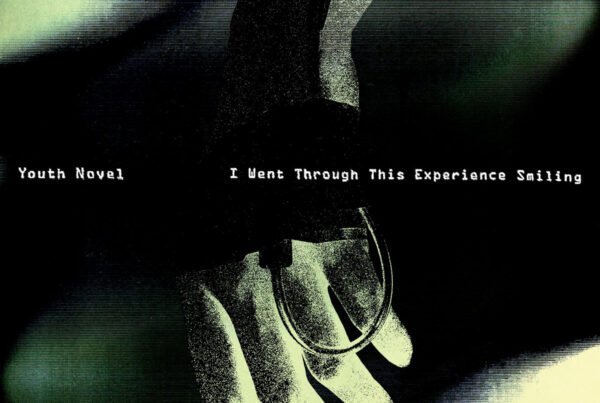Chat Pile and Hayden Pedigo‘s In The Earth Again is a powerful musical treatise on toxic masculinity, violence, anxiety, and the American way.
Release date: October 31, 2025 | Computer Students | Chat Pile Instagram | Bandcamp | Hayden Pedigo Instagram | Bandcamp
‘The wrath of God lies sleeping. It was hid a million years before men were and only men have the power to wake it. Hell aint half full. Hear me. Ye carry war of a madman’s making onto a foreign land. Ye’ll wake more than the dogs.’ – Cormac McCarthy, Blood Meridian
From the moment the first strings are struck on In The Earth Again, the new collaboration between Texas Panhandle finger-picker Hayden Pedigo and Oklahoma masters of noise Chat Pile, a journey to a half-filled hell is begun. Like Cormac McCarthy‘s violent, sobering foray into the heart of American pathos, In The Earth Again drags a blood-covered finger through the water-starved dust of the American plains.
The album is the story of settler America – the savage, toxic sensibility that seems to simmer in the chest of every red, white, and blue-blooded man that built a home on the slaughter of indigenous life. Whether it be the millions of bison that roamed the land for centuries or the countless numbers of Native Peoples who found themselves at the wrong end of a rifle, the story of the American southwest is dripping in blood.
In The Earth Again is a blood-soaked, violent exploration of the how and why of this existence. Opening track “Outside” conjures up sounds lifted from Sonic Youth‘s Bad Moon Rising, another band that was fascinated with the empty roads of the Southwest. It’s the sound of the red sun rising over the east, casting a blood-red sheen across the barren deserts and plains of the west. A pedal steel, the rattle of a snake’s tail, and reverb-drenched harmonics lay the foundation for the novel about to unfold over the next half an hour.
McCarthy’s vision of the American West has always been as much about the internal struggle of men as their external battle against a land that refuses to be tamed. On “Demon Time,” Raygun Busch sings, ‘And they will find you‘, before pausing for the chilling resolution: ‘And they will fuck you up‘. The song exists inwardly – even its opening line, ‘Hey stupid eyes‘, feels like an act of self-flagellation.
“Demon Time” merges seamlessly into the doom-laden “Never Say Die!”, where Busch’s screams overlay morose, laconic vocals. Dissonant guitars wallow in minor-key misery, while the ironically defiant title paints a portrait of a world just as rich in death and despair as it is in hope and glory.
The lyrics cut deep: ‘And there was no world/Without the blood of your children/Without the pain of the masses/Without the screams of eight billion‘. Chat Pile and Hayden Pedigo agree that if we choose to live in a world that accepts children as sacrificial lambs upon the altar of freedom, then this is the bed we have made. Sleep in it at your own expense.
The literary parallels within In The Earth Again amplify its sense of melodramatic pathos. The album has more in common with Blood Meridian or Peter Carey’s True History of the Kelly Gang – novels steeped in masculine guilt and existential dread – than it does with any of its musical peers. It’s more than a meeting of minds; it’s a shared understanding of place and burden. Pedigo and Chat Pile know that unless we confront our inner demons, we are doomed to repeat the bloodshed that defines not just America, but humanity itself.
There’s an emotional intensity that builds up over the course of those first three songs, like the sun slowly rising to its zenith. By the time the band reaches “Behold a Pale Horse”, there’s a moment of capitulation, of giving oneself up to the depression and torment that’s locked inside of us all. ‘Death is what the living carry with them‘, McCarthy once said, and the musical interstitial of “Behold a Pale Horse” seems to embody that sense.
“The Magic of the World” continues this capitulation: life ends in death, which makes one question the validity of actually living. In Larry McMurtry’s Lonesome Dove – another Great Plains epic – death comes in wildly unexpected forms. Being attacked by water moccasins, struck by lightning, castrated and scalped, or being accidentally shot by drunken card players, are just a few ways in which fate plays its part. It’s no wonder the settlers not only lived as if there was no tomorrow, but as if there was no God. We all just end up food for the vultures in the end, so fuck ‘em all.
“Fission/Fusion” denotes the midpoint of the album, one of the heaviest and most violently industrial pieces of noise the band has ever concocted. It explodes like lightning to the face, then settles into smoldering embers, ushering in the record’s back half.
At over seven minutes, “The Matador” is In The Earth Again’s most experimental track. It opens with two minutes of oppressive, pulsating noise – an exorcism of sound that gives way to rebirth. Here, the listener becomes the sole survivor among the dead. It’s a rare moment of power on an album otherwise devoted to repression. The chord progression and production make the song feel ugly and unclean – the sound of fear made flesh. By its midpoint, the track marches forward on the backs of black horses and blood-soaked hands, the air thick with gunpowder and scorched earth.
On Chat Pile’s debut album God’s Country, they end with the nine-minute “grimace_smoking_weed.jpeg”, a terrifying journey into a drug-induced mania that coalesces into sheer madness. The song is Chat Pile’s “Expressway to Yer Skull” or “Death Valley ‘69”, a definitive moment of artistic purity. “I Got My Own Blunt to Smoke” is a showcase for Hayden Pedigo’s economical finger-picking, an emotive moment of wandering off from the herd to find some peace under the prairie stars before the storm comes through and reduces everything to a muddy version of hell.
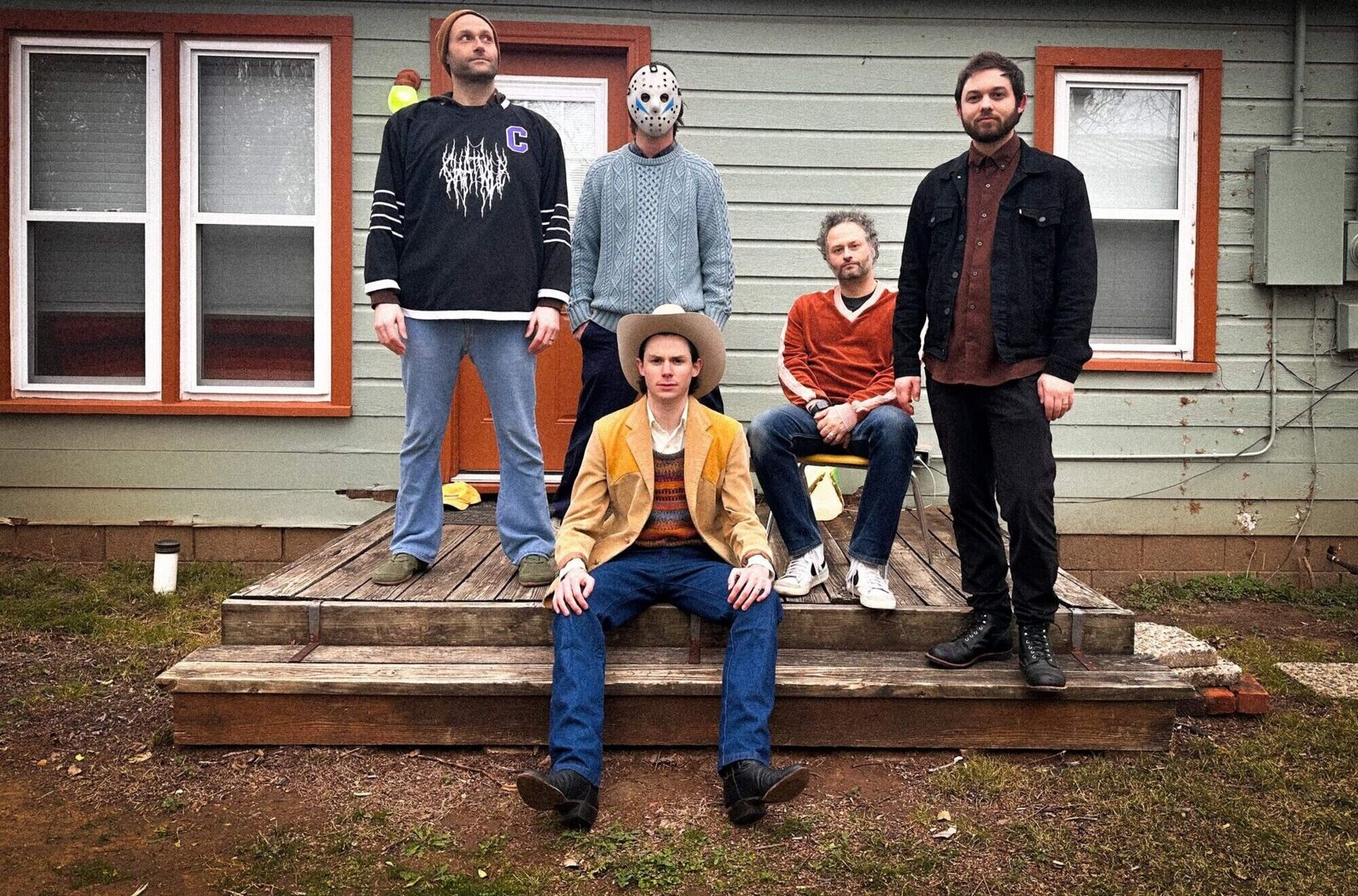
Photo by Bayley Hanes
Hayden Pedigo‘s contributions act to temper the ferocity of Chat Pile’s cocaine-laced riffage with a narcotic dose of heroin. Laconic – dripping with the slow passage of time characteristic of hot summer days in the Texas Panhandle – the songs in which he is front and center, like “Radioactive Dreams”, give the band time to really think. By the tail end of the album, Pedigo and company seem to revel in the resignation of failure and despair. The guitar playing on the song is beautiful, harmonics ringing out over gently picked strings, adding a forlorn intensity to the simple, powerful exaltations of Busch:
‘So I’m sitting now
Half in the earth
With the ghosts of my friends
And the ghost of the world
And the echo is endless
So I share my song
With the veins of the soil
And the angels of the earth
And God’
Hell is half full, indeed.
The final two songs feel like the sun setting over the Western sky. “Inside” drifts like a mirage – its meandering guitars sweltering under the summer heat, vultures circling above cracked desert soil, the bones of bison whitening in the dust. “A Tear for Lucas”, the closing track, is a fitting end to an album of such crushing sadness. If there’s any hope for humanity, it lies in our capacity to feel for others what we cannot feel for ourselves. ‘How I wish I could hold the planet up‘, Busch sings over Pedigo’s gentle picking, ‘With my two hands and make it right‘. By the final verse, his voice breaks – sincere, raw, and justified. ‘I loved you then‘, he cries, ‘Like I love you now‘.
In The Earth Again is one of the most powerful albums of 2025, and for good reason. Chat Pile and Hayden Pedigo have created a novel in sound – one written in justified anger, desolation, and grace. There’s a caustic truth to their music, a simmering synergy of masculine confusion and regret. At what point, they seem to ask, will humanity grow tired of crawling toward the top over the severed limbs of its brothers and sisters? In The Earth Again acknowledges that everything is fucked beyond recognition – but when the sun rises once more, we’ll be back on our horses, searching for the next unwitting victim of our own selfishness and despair.
Header photo by James Cooper



